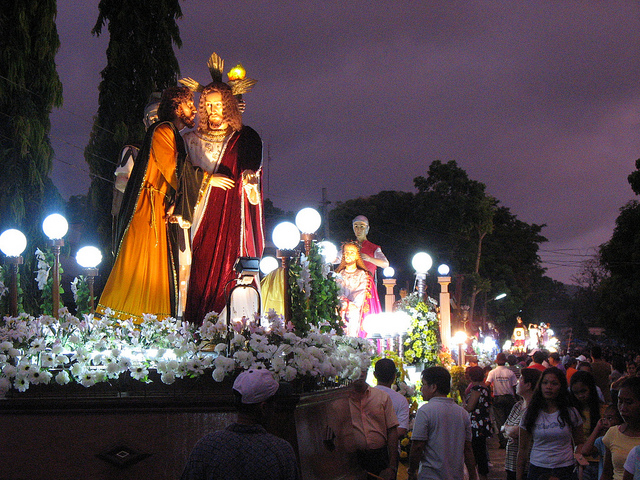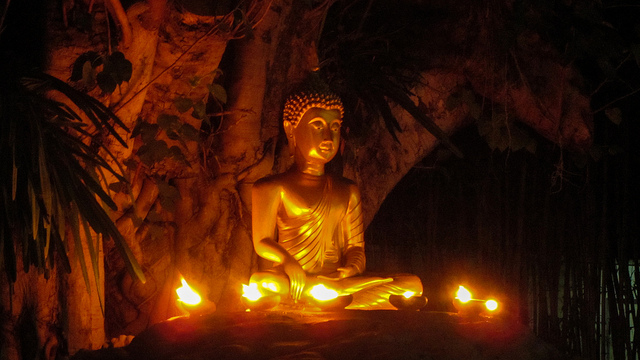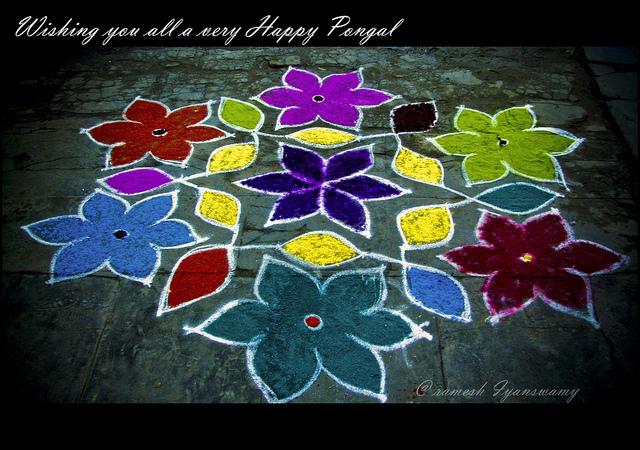Hari Raya Puasa is the Malay equivalent of Eid al Fitr, a major Islamic festival held at the end of the dawn-to-sunset fasting month of Ramadan. Hari Raya means “a day of celebration” and “puasa” means “fasting.” It is celebrated in Indonesia, another Muslim-majority country, as Lebaran. Although Muslims are not as populous in Singapore and the Philippines, the event is observed nationally. It is both known as Hari Raya Puasa and Hari Raya Aidilfitri in the former, and, rather incorrectly, Ramadan in the latter (a shortened version of “Wakas ng Ramadan” or end of Ramadan).
Fasting as a Pillar of Islam
The importance of fasting among Muslims cannot be overemphasized. Fasting is one of the Five Pillars of Islam and should be performed by healthy adults – except pregnant women, menstruating women, the elderly and the infirm – during the month of Ramadan. Fasting during this period constitutes abstinence from eating solid food and even liquids during daylight hours, smoking, getting into intimate relations and getting into an argument. Muslims perform this sacred obligation to purify themselves and renew their faith.
Hari Raya Puasa the Best Time to Enjoy KL and Jakarta
Hari Raya Puasa is a national holiday in Malaysia. As with any Islamic holiday, exact dates are determined by the local sighting of the new moon. In 2016, it is expected to fall on Wednesday-Thursday, July 6-7. The same dates are going to be observed in Indonesia. In Singapore, it is celebrated as a one-day national holiday on July 6.
Although Hari Raya Puasa is a two-day holiday in Malaysia, locals normally take an entire week off to celebrate. The same can be said of celebrations in Indonesia, although the emphasis is more on the week preceding Lebaran.
Kampong Glam or Arab Street, where Arab traders settled during the founding of Singapore, is bedecked with lighting and holiday decors and bustling with brisk sales of textiles, crafts and traditional food like popular Malay cakes “kueh-kueh” or “ondeh-ondeh.”
In the Philippines, the end of Ramadan is business as usual in the capital city, Manila, and provincial cities, save for pockets of Muslim communities who observe the day. The largest Eid “salat” prayers are performed in the open space of the Luneta Grandstand. In Mindanao, home to Muslim-majority population, similar rites are performed. Muslim families typically invite non-Muslim neighbors to share their food much like Catholics invite one another to enjoy the banquet during “fiestas.”
Mass Exodus to the Provinces on the Occasion of Hari Raya Puasa
During the holidays, families go back home to their provinces for reunions in a tradition known as “balik kampung.” Domestic travel can get very busy on the days leading to Hari Raya Puasa, so keep in mind to minimize unnecessary travel during this period to avoid inconveniences (unless you want to get a good feel of this celebration to understand how it shapes the Malay culture, then you can endure hours and hours of heavy traffic).
On the other hand, this may also be the best time to enjoy Kuala Lumpur – which could be gridlocked on any other day – as KLites make an exodus to spend the holidays with their families and friends. Muslim hawker stalls and businesses are closed during Hari Raya Puasa. Malls and other businesses usually remain open.
As with any major Indonesian holiday, the tradition of going back to their families of birth is still practiced in Jakarta and even in major capital cities in the Philippines. In Jakarta, in particular, this “mudik” or mass exodus means impossible traffic in major thoroughfares as literally millions of city dwellers beat each other for transport home. This opens up the Indonesian capital and ease things a bit for tourists who would otherwise find Jakarta a stifling city on regular days.
Hari Raya Puasa Family Traditions
The post-Ramadan holiday starts with “Solat Sunat Aidilfitri.” Families put on their new clothes and troop early in the morning to the nearest mosques for these Hari Raya prayer congregations, and then visit the graves of departed family members for an offering of “doa” (prayer verses).
Hari Raya Puasa is a time for reconciliation, so family members (especially younger ones) seek forgiveness of sins from each other (particularly from the elderly), invoking the atonement “Maaf Zahir Batin” during house visits to relatives and friends.
For children, Hari Raya Puasa is a day of receiving gifts. Elders prepare “duit raya” or crisp bills inserted in colorful packets, similar to the Chinese New Year tradition of receiving “ang pao.”
Communal Celebration of Hari Raya Puasa
Hari Raya Puasa is a festive, colorful and communal celebration, in keeping with the spirit of reunion, renewal and reconciliation.
Business picks up on the days leading to Hari Raya Puasa as families shop for new clothes and items in preparation for the festivity. Houses are thoroughly cleaned and households burn oil lamps, supposedly to welcome the angels that pay families a visit before the start of the festival.
Streets, establishments and edifices are ablaze with multi-colored lights and adornments that make the occasion a real celebration after a long period of abstinence. The lit-up scenario is similar to the Western world’s celebration of Christmas holidays.
Non-Muslim Malays visit their Muslim brothers and sisters during “open houses,” as a sign of respect and as an act of renewing relationships to keep them strong. Even the Prime Minister puts out an open house, an open invitation to all – including tourists – to break bread with everyone. Thus, it is during the holidays that one gets to enjoy all the native Malay delicacies – ketupat, rendang, nasi impit, lemang, biskut raya – while striking friendships with the locals and getting immersed in Malaysia’s religious customs.
In Indonesia, the communal atonement involving not only close family and friends but also business associates, is known as “halal-bihalal,” a mutual begging of pardon and forgiving of slights. In the villages, families pay house visits to relatives and friends to personally beseech the other by saying “Mohon Maaf Lahir dan Batin” (forgive my physical and emotional wrongdoings). The traditional dish “ketupat” is also shared during the feast and children likewise receive gifts from their elders during the occasion.
Photo by Choo Yut Shing




